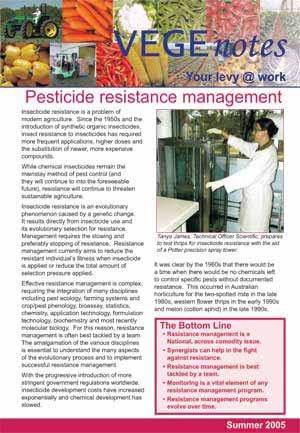|
|
Insecticide resistance is a problem of modern agriculture. Since the 1950s and the introduction of synthetic organic insecticides, insect resistance to insecticides has required more frequent applications, higher doses and the substitution of newer, more expensive compounds. While chemical insecticides remain the mainstay method of pest control, resistance will continue to threaten sustainable agriculture. Insecticide resistance is an evolutionary phenomenon caused by a genetic change. It results directly from insecticide use and its evolutionary selection for resistance. Management requires the slowing and preferably stopping of resistance. Resistance management currently aims to reduce the resistant individual’s fitness when insecticide is applied or reduce the total amount of selection pressure applied. Effective resistance management is complex, requiring the integration of many disciplines including pest ecology, farming systems and crop/pest phenology, bioassay, statistics, chemistry, application technology, formulation technology, biochemistry and most recently molecular biology. |
|

